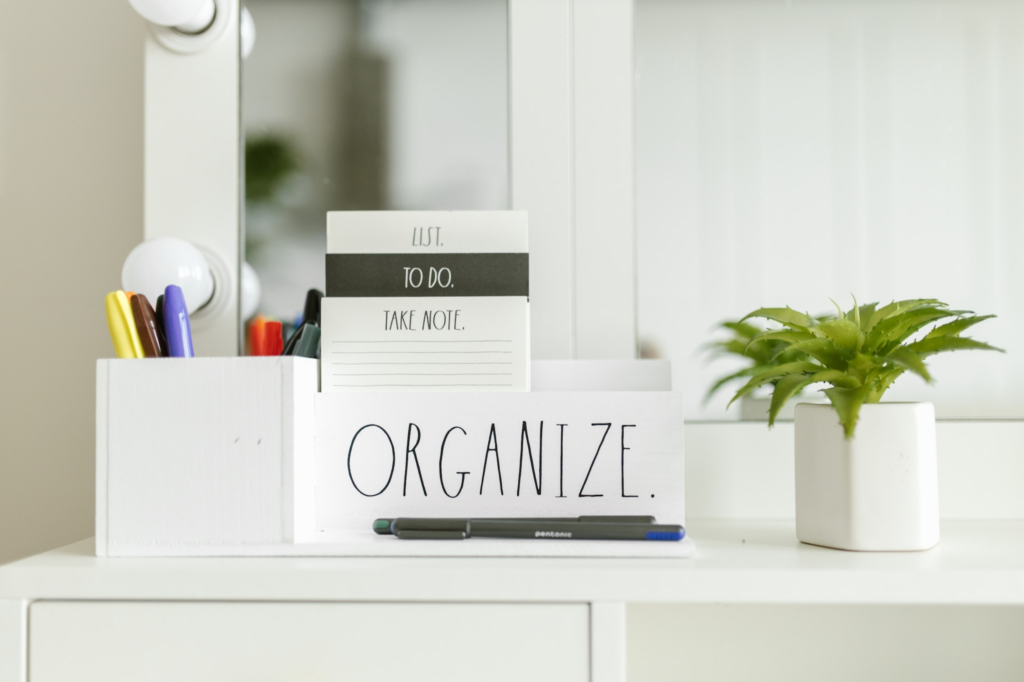It’s hard to explain, but there’s something so satisfying about walking into a well-organized pantry with shelves of labeled baskets, color-coordinated canned goods, and matching jars.
And while taking a trip to the Container Store or scrolling through the most popular organizational products on Amazon can help you turn a cluttered home into an Insta-worthy space, the easiest way to achieve your desired look is to hire a professional organizer.
Sure, it’s a luxury to hire a pro to take care of your clutter or organizational needs, but a Good Housekeeping survey recently found that over half of people would hire a professional organizer if they had the opportunity.
But for clarification, that one friend who follows every organizing profile on social media and likes to label their house is not a professional.

However, according to the National Association of Productivity & Organizing Professionals, there are over 3,500 members who are professional organizers.
Many of these pros take the step to see if this is a path that fits them or not by paying for the $300 NAPO educational membership.
This is a great way to go because it includes three courses: basic organizing theory, how to get hands-on with organizing, and a review that goes over NAPO’s code of ethics. Plus, you have access to other tools such as industry conferences and networking events.
Classes are just the beginning, though. If you really want to be a professional organizer, there are some things you should know.
To help you decide if a career in professional organizing is the path for you, we’ve created the following guide with everything you need to know.
Starting Out
As you’re thinking about becoming a professional home organizer, there are some skills you need or should improve.
Choose the Type of Professional Organizer You Want to Be
Organizing doesn’t fit neatly into just one category. There are different areas of focus, including corporate organizing and residential organizing.
Then, you have other special situations, such as those involving hoarders, that you’ll have to decide if you’re ready to handle.
It doesn’t matter what type of professional organizer you choose to be; just ensure that you are great at problem-solving and always finding new solutions to problems.

Create a Brand Image and Stick with It
Perhaps you specialize in acrylic bins in every room or floor-to-ceiling baskets in every closet. Part of your success relies on knowing what look you want to achieve and keeping your patterns consistent from client to client.
This is just a matter of learning how to put your “signature” on each of your jobs.
Utilize Social Media
Currently, there are over 2 million Instagram posts tagged with #organization, and this number increases every second.
Hence, a large part of your marketing strategy should include social media platforms such as Pinterest, Instagram, Facebook, Twitter, etc.
The truth is that an online presence allows you to connect more easily with your target audience and provides the perfect place for you to showcase past projects.

Get in Touch with the Emotional Aspects of the Process
While it’s easier for you to view someone else’s belongings as trash, it’s vital that you always remember your clients’ homes are filled with sentimental value.
And even those clients who you think you know the best can surprise you, as you’ll learn even more when going through their items.
It’s best to monitor body language and learn their routines and habits to spot ways in which you can make a real difference. At times, this means reading between the lines to learn your client’s goal.
How to Become a Professional Organizer
If you are set on having a career as an organizer, these are the steps you should follow:
1. Complete Education and Training
Some professional organizers have little to any training or certifications. Some of them are simply people with a naturally-born talent to organize and want to help others.
At the very minimum, a pro organizer should have a high school diploma. Additionally, there are many other paths that can lead to earning a professional certification needed to legitimize your skills.
2. Obtain Your CPO Certification (Or get real life experience by joining a professional organizing team!)
Getting your CPO certification is by no means necessary, but for some people it can help.
The best advice we have to becoming an organizer (and getting better over time) is to get real-world experience by joining a professional organizing team, or by taking the leap and starting your own company (this option is not suggested for beginners).
One step you can take towards becoming a professional organizer is to get your CPO certification through The National Association of Productivity and Organizing Professionals.
Doing so makes for an excellent credential on your resume and gives your organizing skills some credence, thus setting you apart from the competition.
To obtain a CPO certification, you will need a high school diploma or GED and proof that you’ve completed at least 1,500 hours of paid work during the past five years serving as a professional organizer.
You will also have to adhere to a strict code of ethics and pass a written, 125-question exam. Once you pass the test, there will be an annual membership fee of around $300.

3. Build a Customer Base
After you’ve finished all training and certifications, you should continue to offer your skills to clients. Perhaps there’s a friend or family member who could use some decluttering and organization in their home.
It’s a great idea to begin getting your name out there by offering free consultations, as this is a great way to connect with clients and show them what you can do.
Skills Needed to be a Professional Organizer
Are you wondering what skills you need to be a professional organizer? The following list contains the basic skills you should possess to enter the industry:
- Organizational Skills: Obviously, you should be able to locate organizational issues, create a plan of action, and then use the plan to solve the problem. The best professional organizers reflect these skills in their professional and personal lives, and their homes usually reflect this.
- Empathy: This is an important trait because it helps you better understand people. Organizers will need to empathize with clients and understand why it’s so hard for them to part with certain items. Empathy will help you resolve your client’s resistance and reach your organizational goals.
- Problem-Solving: Home organizers spend a great deal of time solving problems, so it’s vital that you possess these skills.
- Creativity: Some of these problems will require you to get creative, so you should be able to display good levels of creativity in your work.
- Communication Skills: The ability to speak clearly and effectively with clients is a must. This will help you convey your visions but will also help you ask better questions to prevent possible misunderstandings.
- Attention to Detail: Finally, you should have an excellent eye for detail, as this allows you to find things that other people may have missed. This is the one skill that separates everyday home organizers from professional organizers.
Career Advancements and Salary
As people’s lives become busier, the need for professional organizers has grown exponentially. Most organizers enter the industry as independent consultants or contractors, which means they offer limited access to packages and other benefits.
However, this does offer them the greatest room for industry growth. Most of the nation’s top home organizers have created successful brands thanks to their organizational skills.
The rate of pay for a professional organizer will depend on factors such as experience and location. Typically, the starting salary for a professional organizer is around $56,000 per year.
Benefits of Being a Professional Organizer
There are many benefits that come with dedicating your life to being a home organizer. Some of these benefits include:
- You get to help others organize their home and make them more efficient.
- You have the unique opportunity to help clients address their mental health concerns by organizing their spaces and eliminating clutter.
- You get to plan and organize rooms, homes, and businesses in ways to foster certain results, such as relaxation, creativity, or productivity.
- You can help clients understand the importance of organization in their lives.
Hence, most people choose to become professional organizers because they deeply desire to help others and put their organizational skills to good use.
Are you still considering being a professional organizer? If so, congratulations – it’s a very rewarding career that allows you to help others and run your own business!



